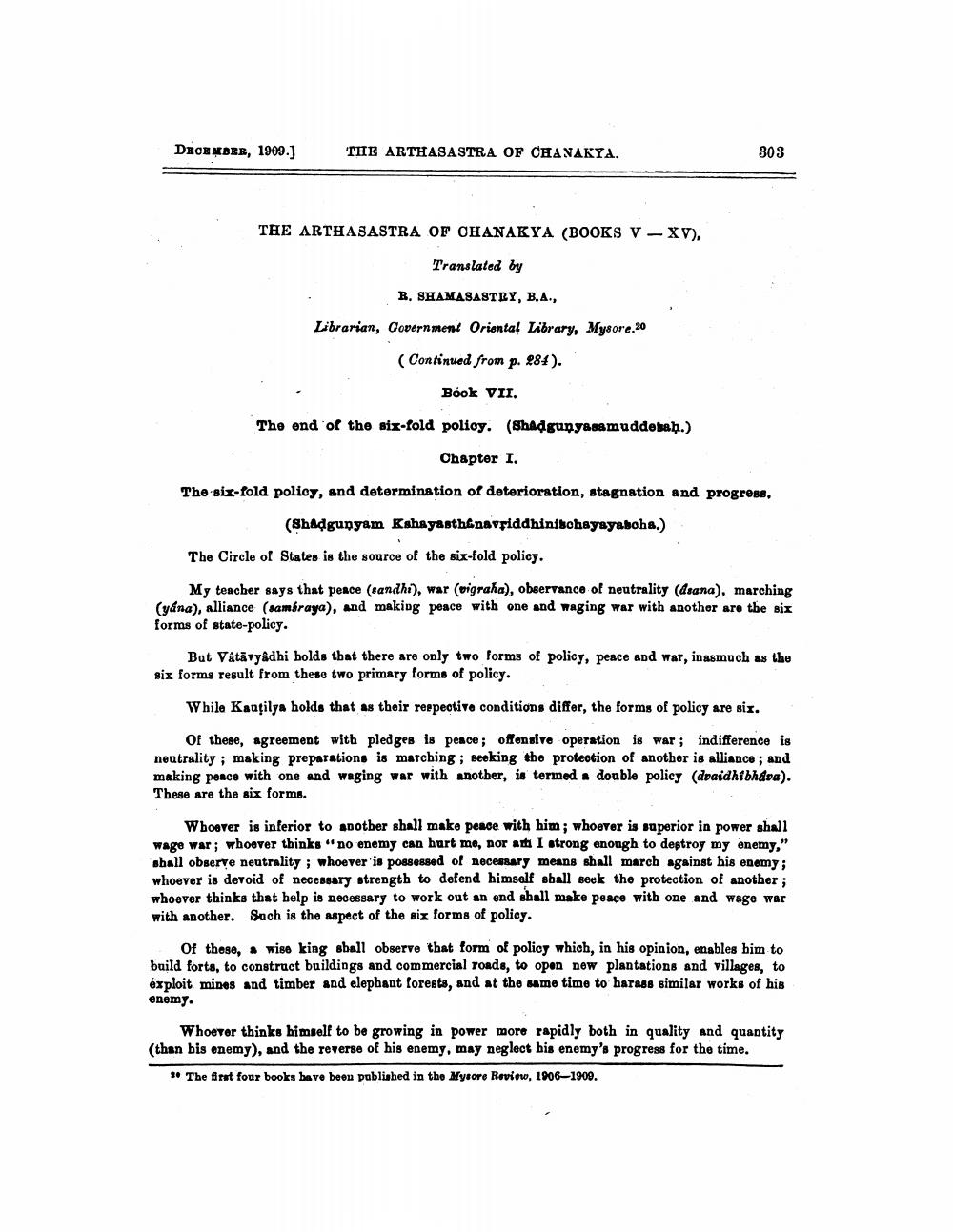________________
DECEMBER, 1909.)
THE ARTHASASTRA OF CHANAKYA.
803
THE ARTHA SASTRA OF CHANAKYA (BOOKS V - XV).
Translated by
R. SHAMASASTRY, B.A.,
Librarian, Government Oriental Library, Mysore.20
(Continued from p. 284).
Book VII. The end of the six-fold polioy. (Shadgun yasamuddeban.)
Chapter I.
The six-fold policy, and determination of deterioration, stagnation and progress,
(Shadgunyam Kshayasthenavriddhinischayayaboha.) The Circle of States is the source of the six-fold policy.
My teacher says that peace (sandhi), war (vigraha), observance of neutrality (dsana), marching (yana), alliance (sambraya), and making peace with one and waging war with another are the six forms of state-policy.
Bat Vâtävyadhi holds that there are only two forms of policy, peace and war, inasmuch as the six forms result from these two primary forms of policy.
While Kautilya holds that as their reepective conditions differ, the forms of policy are six.
Of these, agreement with pledges is peace; offensive operation is war; indifference is neutrality; making preparations is matching ; seeking the protection of another is alliance; and making peace with one and waging war with another, is termed a double policy (dpaidhibhava). These are the six forms.
Whoever is inferior to another shall make peace with him; whoever is superior in power shall wage war; whoever thinks "no enemy can hurt me, por at I strong enough to destroy my enemy," shall observe neutrality; whoever is possessed of necessary means shall march against his enemy; whoever is devoid of necessary strength to defend himself sball seek the protection of another; whoever thinks that help is necessary to work out an end shall make peace with one and wage war with another. Such is the aspect of the six forms of policy.
Of these. # wise king sball observe that form of policy which, in his opinion, enables him to build forts, to construct buildings and commercial roads, to open new plantations and villages, to exploit mines and timber and elephant forests, and at the same time to harass similar works of his enemy.
Whoever thinks himself to be growing in power more rapidly both in quality and quantity (than bis enemy), and the reverse of his enemy, may neglect bis enemy's progress for the time.
** The first four books have been published in the Mysore Review, 1906-1909.




